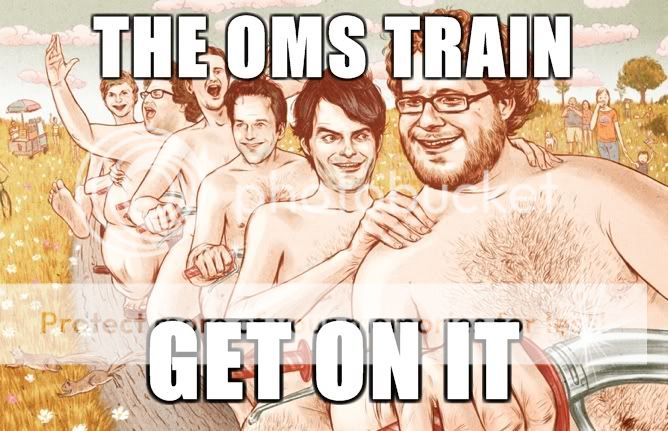Sounds like I need to grab the PDF on campus today. He probably addressed all of my random thoughts/questions. Still intrigueing that such a difference exists. Thanks.
DM,
Here is the editorial in question:
JOMS, Volume 68,
Issue 4, Pages 713-714 (April 2010)
The View From the Third Rail
Leon A. Assael, DMD
Article Outline
•
Lack of Meaningful Discourse
•
The Engine: Our Residency Programs
•
Reaching a Fork in the Track
•
Looking Down the Track
•
Copyright
Politicians, with their continuous need to be re-elected, have characterized so many issues as
third rail issues that they encompass much of the mainstream of American life. Social Security, Medicare, agricultural subsidy, family planning, sex education, banking regulation, health care reform, the tax code, funding of public education, among others, are believed to promote so much controversy, such entrenched opinion, that attempts to achieve a meaningful discourse, a general consensus, and resolute action have resulted in paralysis. Failure to act on these issues has not solved these problems but simply left them as open wounds to generate further controversy and strife. The consequences of failing to address these third rail issues that are emerging will diminish our ability to move forward as a society and stifle our success in the global economy.
Could oral and maxillofacial surgery have its own "third rail?" In the United States, the answer is obvious. It is the issue of the medical degree.
For our specialty, entrenched opinion continues to stifle meaningful discourse, thwart spirited debate, prevent a general consensus, and obviate resolute action on the fundamentals of how we are to educate the future members of our specialty and subsequently what their role will be in the fabric of American health care.
Lack of Meaningful Discourse
Since the meetings in Tenerife and Bermuda decades ago, no analysis of how or whether the medical degree could be integrated into American oral and maxillofacial surgery education has occurred. The current state of affairs is confusing to the public, to prospective applicants, and to policy makers. The educational rationale for 4-year or 6-year MD integrated programs is not coherently presented to dental students. The casual observer is left to imagine what the differences in education and practice might be. Advocates continue to loudly proclaim the advantages to 4 or 6-year education while the position of our specialty remains that there is no difference.
Leaders within OMS struggle to find the words to adequately describe who we are while continuing to meet the needs of all of the members of the specialty. It is difficult to provide a rationale for our dichotomous nature, because no rationale based upon standard educational values can be applied. Failure to present a rationale for understanding our dichotomous specialty in the US creates problems for all. While issues of licensure and scope of practice continue for the specialty, addressing those issues is made more complex by the dichotomous groups within it.
Most countries with active specialties of oral and maxillofacial surgery made a decision regarding the character of specialty education decades ago, before opinion became entrenched. While Britain, France, Germany, Italy, Japan, and China (among others) still struggle with the aftermath of their choice (for example, British surgeons are facing a nascent oral surgery specialty, the French do not maintain an identity within dentistry, and the Germans lead in oncology but struggle for identity in cleft and esthetic surgery), they have charted a single course for their specialty, a course that can serve as a basis for their advancement and serve a specialty's coherent identity.
No other medical, surgical, or dental specialty in the United States rests with this dichotomy in education. While multiple pathways exist in other medical surgical specialties, they all culminate in the same qualification. While ABOMS eligibility and achievement of ADA-recognized specialty status is the same for 4-6 year programs, as a practical matter, a divergence of qualifications has evolved. Membership in surgical organizations, de facto access to some fellowships, access to payers, and access to categories of patients are certainly influenced by the degree issue. The continued inability of the Commission on Dental Accreditation to understand the needs of OMS programs as well as the lack of oversight of the MD component and general surgery year continues.
The Engine: Our Residency Programs
Program directors of 6-year programs have not had the issues particular to their training ideals addressed in a comprehensive fashion. This may be due to the fear of appearing divisive. After 3 decades of integrated MD/OMS education, it is time to assess the impact of these programs, take actions to further enhance their quality, and measure their effect. This will help guide our specialty toward a decision on this vital issue.
To begin this debate, consider how MD-integrated programs are advancing our specialty. Here briefly is an assessment of our dichotomous education as seen in the pages of
JOMS.
Medical degree integrated programs have an exceptional outsized effect on the specialty as it appears in
JOMS. For example, 109 articles appeared in
JOMS in 2009 from 45 American oral and maxillofacial surgery programs. Just 16 of these articles were from 4-year programs, while 93 (85%) were from MD-integrated programs. Of the 45 represented programs in
JOMS 2009, 37 are integrated MD programs.
In addition, of the top 10 programs each producing 4 or more papers in 2009, all but one is MD integrated. They are:
Harvard-Massachusetts General Hospital
Loma Linda University
Oregon Health & Science University
University of California, San Francisco
University of Florida, Gainesville
University of Michigan
University of Minnesota
University of North Carolina
University of Texas, Southwestern Medical School
University of Texas, Houston
These papers have focused upon the broad range of the specialty including office-based and hospital-based procedures. They are especially focused on emerging technology and new skills to improve the specialty.
Reaching a Fork in the Track
Our programs are now cleanly divided between MD-integrated programs and 4-year programs. Currently, 1,027 residents are enrolled in 100 programs, 89 civilian programs and 11 US Armed Forces programs. Of these 1,027 future oral and maxillofacial surgeons, 491 are in civilian MD-integrated programs, 469 are in civilian 4-year programs and 67 are in Armed Forces 4-year programs. Forty-nine percent of the current enrollees will complete an MD-integrated residency.
Of note is to consider the position of the 536 residents now enrolled in 4-year programs. Of these 536, 334 (64%) are residents in programs with a medical school housed directly on their campus/hospital complex. Additionally, 168 residents (31% including all 67 of the Armed Forces enrollees) have direct access to a medical school through their sponsoring institutions affiliations. Just 24 (5%) of the current 4-year OMS residents are enrolled in programs that are part of institutions not directly affiliated with a medical school. Clearly, our specialty is at a fork in the track, with two clear and available options towards the future.
Looking Down the Track
It is hoped that this editorial will provoke a vigorous response, as it should. Now is the time for meaningful discourse on this issue which is the most critical one affecting the future of our specialty. But that response should not prevent a reasoned debate and eventual decision on this issue.
Looking down the track and sitting on the third rail can get your attention, but worrying about the voltage does not help you to see what's coming. Health care education is racing down the track. It's time to get on board the OMS train and figure out where we are going.
PII: S0278-2391(10)00165-5
doi:10.1016/j.joms.2010.02.006
© 2010 American Association of Oral and Maxillofacial Surgeons. Published by Elsevier Inc. All rights reserved.




